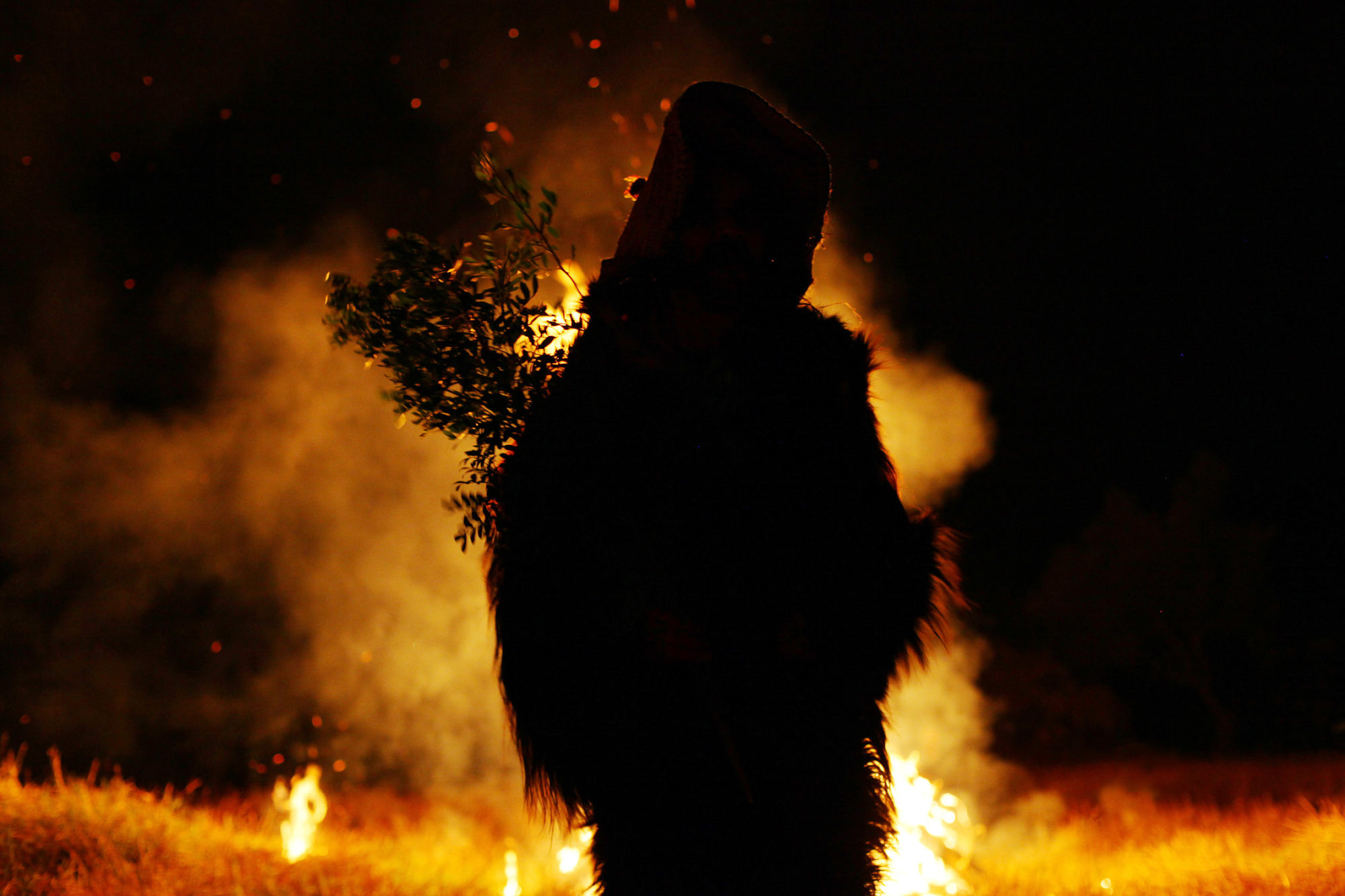The remarkable music played by the Master Musicians of Joujouka, a remote village in the Ahl Srif tribal area south of the Rif in Northern Morocco, is thousands of years old.
In the 15th century, when the Sufi saint Sidi Ahmed Schiech arrived in the village, he wrote music for the Masters’ ancestors which could heal disturbed minds. Today’s Masters are blessed with the Baraka or spirit of their saint and use touch and prayer to heal.
Bou Jeloud
The Masters’ performances feature a dancer dressed as Bou Jeloud, a Pan-like figure half goat half man. Although the character of Bou Jeloud is found all over Morocco, it takes on different form in Joujouka.
In Joujouka, Bou Jeloud gave an Attar ancestor the gift of flute music and bestowed fertility on the village every spring when he danced. The music relating to this is the Masters at their most mind-blowingly powerful.
The Masters, Beats and Hippies
In 1951, the American writer Paul Bowles and the Canadian painter Brion Gysin travelled to a Sufi music festival in Sidi Kacem, a couple of hours from where they were living in Tangier.
When he heard the Masters, Gysin said he wanted to listen to their music every day of his life. In Tangier, he met Mohamed Hamri, a would-be painter from Joujouka. When Hamri took Gysin to Joujouka, Gysin discovered to his astonishment that the music he’d fallen in love with was played by Hamri’s uncles.
Gysin and Hamri opened a restaurant in Tangier called The 1001 Nights and members of the Masters became the house band. It was here that legendary Beat figure William Burroughs first heard the music.
In the late 1950s Gysin and Burroughs lived in the Beat Hotel at 9 rue Git le Couer, Paris. Here Gysin invented the Cut-Up Method of writing and theDreamachine with Ian Somerville and worked with Burroughs, Somerville and filmmaker Antony Balch in Cut Up film experiments to a soundtrack of the Masters Musicians made by Gysin.
When the Rolling Stones were in Tangier in 1967, Hamri and Gysin met them and Hamri formed a bond with Brian Jones. Brian went to Joujouka, where he, too, fell in love with the Masters’ music, although he said ‘I don’t know if I possess the stamina to endure the incredible, constant strain of the festival’. He returned in 1968 to record the Masters.
Before he died in 1969, Brian had prepared the cover, and edited and produced the album of recordings he made of the Masters. Brian Jones Presents the Pipes of Pan at Joujouka was released in 1971, honouring Brian’s memory and exposing a wider audience to the remarkable music of the Masters for the first time.
In January 1973, jazz musician Ornette Coleman recorded with the Masters. A small part of what was recorded was released on the 1975 album Dancing In My Head album. Also in 1975, Hamri’s book Tales of Joujouka was published.
Thanks to Rikki Stein, the Masters played at Worthy Farm, the site of Glastonbury, for the first time in 1980 as part of a three-month tour which included a week’s residency at London’s Commonwealth Institute.
To 2008
After many years painting in LA, Hamri returned to Joujouka and found discord in the village. He built a new house there which became a gathering place for many of the old Masters and their apprentices. He took a large group to Italy in 1991 and in 1992 both he and the Masters took part in the Here to Go Show in Dublin, documented in the DVDDestroy all rational Thought.
In Dublin, the Masters met Frank Rynne, their current manager. Frank spent two months with Hamri in Joujouka in 1994 recording the classic CD Joujouka Black Eyes for Sub Rosa. Since then, he’s recorded Sufi: Moroccan Trance and Boujeloud. In 1998 Hamri and Masters’ drummer El Khalil Radi took part in the Festimad Poetica festival in Madrid with Lydia Lunch, Richard Hell, John Giorno, Tav Falco and John Cale. The Masters were also featured on the CD 10% File Under Burroughs, released 1998. In 2012 they appeared on the latest Rough Guide to the Music of Morocco.
The 40th Anniversary of Pipes of Pan
In 2008 the Masters honoured the 40th Anniversary of Brian Jones’s influential recording with a festival at Joujouka. Anita Pallenberg and John Dunbar were among the people who made the pilgrimage to the village. Joujouka by Daragh McCarthy, a film of the 2008 Brian Jones Festival premiered in London in 2012 and will be released in 2013.
Since then the festival has become an annual event, attracting artists, filmmakers, musicians, writers and fans from around the world. As well as generating valuable global publicity for the music, the festival has become an important economic factor in Joujouka life
2011 saw the Masters on the Pyramid stage at Glastonbury, opening the Festival.

